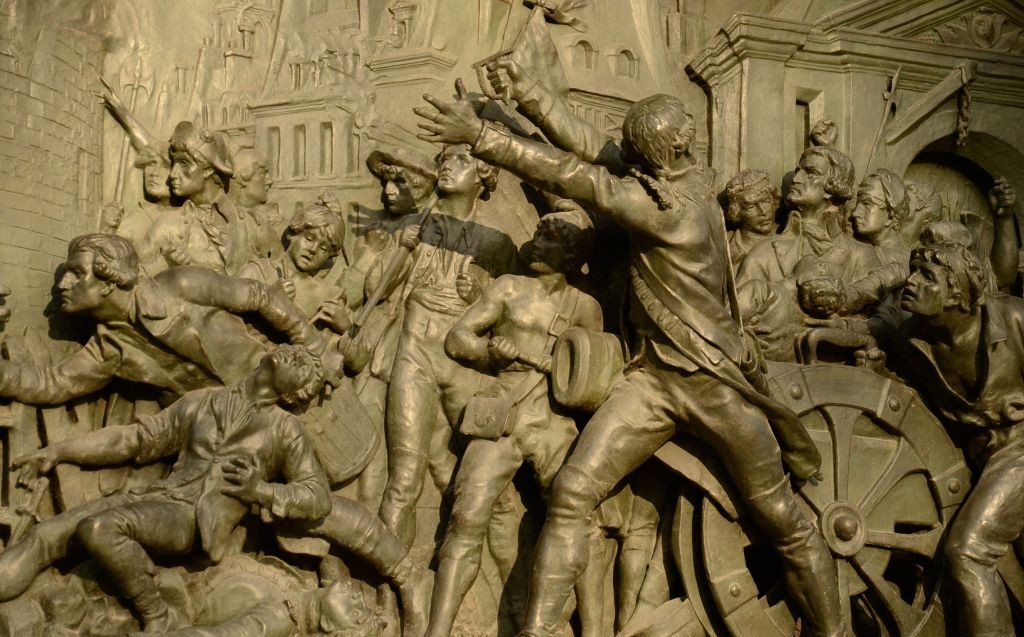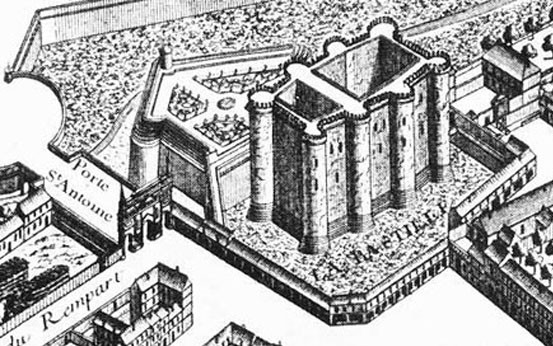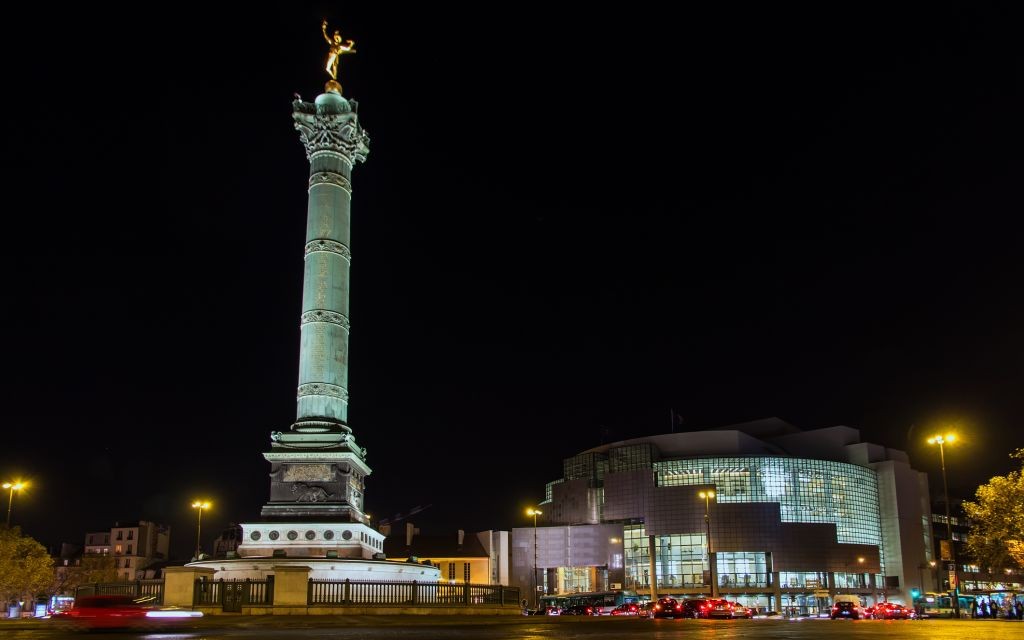“Liberty, equality, fraternity.” The national motto of France traces its origins to the French Revolution. Celebrated just 10 days after our Independence Day, July 14 celebrates the storming of Bastille in 1790, a flashpoint of the French Revolution that eventually led to the overthrow of the French Monarchy, altering modern history and ushering in an era of democracy. This is how the day went down.
After ascending the throne in the midst of a financial crisis, Louis XVI called representatives of the French people for the Estates-General for May 1789, the first time the king has done so in more than 150 years. These “Estates” were categorized as the First Estate (clergy), Second Estate (nobility) and Third Estate (commoners), tasked with compiling a Book of Grievances, which although advocated ideas deemed radical just months before, was overwhelmingly supportive of the monarchy.

The Storming of Bastille on the Statue of Marianne by Leopold Morice, Place de la Republique, Paris, France © Piet Hagenaars | Dreamstime
As negotiations stagnated at the hands of France’s nobility, the Third Estate (who made up 95 percent of the country versus the Second Estate’s 2 percent) moved to break away from the Estates-General to form the revolutionary National Assembly, inviting clergy and nobility to join, but explicitly representing the people, making it clear they will draft a constitution with or without them.
Despite Louis XVI’s attempts to prevent the meeting, members took the pivotal Tennis Court Oath, named after the makeshift conference room held inside a tennis court near the Palace of Versailles. The pledge, signed by 576 of 577 members, stated the assembly was to stand united against the King and to not separate until a constitution was drafted. France was already feeling revolutionary fervor with the creation of the assembly. Censorship of the press had been lifted, allowing the publication of assembly debates, whose thoughts spread like wildfire among the people, along with increasing amounts of violence.

Bastille Prison © M&S Literary Adventures | Flickr
In the meantime, on July 11, Louis XVI banished financial minister Jacques Necker, who was increasingly hostile towards the monarchy and sympathetic to the Third Estate. When news reached the National Assembly the next day, many took it as a pre-emptive strike by conservative forces, calling for open rebellion in response to the appearance of Swiss and German mercenaries who made up a large portion of the Royal Army. With rising food prices, Paris was taken by riots and looting. People began to plunder arms and even gained support of the King’s militarily-experienced French Guard.
By the morning of July 14, Paris was in a state of emergency, with the assembly in armed conflict through the National Guard, a “bourgeois militia” led by Lafayette. They had earlier stormed the Hôtel des Invalides, gathering 30,000 muskets, but with no gunpowder. Although it only housed seven elderly prisoners, the National Guard then set their eyes on Bastille, which contained 13,600 kilograms of gunpowder and the looming symbol of France’s Ancien Régime.

The Column of Bastille © Digikhmer | Dreamstime
A crowd formed in front of the prison calling for its surrender. Two people entered for negotiations, though nothing seemed to materialize, with the people growing impatient outside. Around 1:30 pm, the crowd managed to enter the undefended outer courtyard, leading to the death of one person when the castle’s drawbridge was allowed to fall on the people. It was around then gunfire rang out, with various theories as to what set off the violence. Some believe a cannon was ordered to fire upon the people by Governor Marquis Bernard de Lunay, killing several women and men and instigating a mob.
By 3:00 pm, the crowd gained the support of the deserting troops from the French army, intensifying the violence. The prison fell at 5:30 pm, after the Governor, facing inevitable defeat, ordered a ceasefire and prevented a massacre from happening on both sides (he was beheaded and paraded around the streets nonetheless).
The events that unfolded July 14 would prove to be pivotal, inspiring an entire country and altering the course of modern history. Informed about the violence the next day, Louis XVI asked the Duke of La Rochefoucauld, “Is it a revolt?,” to which he replied, “No sire, it’s not a revolt; it’s a revolution.”
#TrazeeTravel
Insta FeedSurveys
Apr 23, 2024Going the Distance: Which Airports Have the Longest Walks?
You’re in between flights and ready to find a coffee and your next gate and settle in. But then you find the signs to your gate and look down the impossibly long corridor and wonder how you managed to have the gate at the opposite end of the airport.
Sponsored Content
Travel Tips to Help Protect Your Health and Your Trip
Five Tips to Help Minimize Potential Travel Problems
Keep Your Road Trip Smelling Good with Purggo
The last thing you want during a road trip? A stinky car. Luckily, Purggo is here to help —without filling your car with a bunch of nasty chemicals that really only just make you cough and cover up the stench for a short time.
Hotel
Apr 22, 2024Fairfield by Marriott Brand Debuts in Copenhagen
Fairfield by Marriott Copenhagen Nordhavn recently debuted in Denmark. The opening marks the European debut of Marriott’s Fairfield by Marriott brand. The design prototype from OCCA Design Studio will be used as the blueprint for future Fairfield by Marriott properties throughout Europe.
Sponsored Content
The Argosaronic Islands Are Calling
The Saronic or Argo Saronic Islands of Greece call travelers to explore its seven small islands and islets brimming with history, natural sites and more. With most easily accessible by boat, the islands’ proximity to ports of Athens make the Saronic Islands an ideal destination for those preferring shorter boat rides. In fact, trips from Athens ports to the islands take only between 10 minutes and two hours, depending on the island you choose, making them perfect for day or weekend trips.
Airline
Apr 22, 2024You Can Now Pool Your Points with United Airlines
Earlier this month, United Airlines announced MileagePlus members can pool points. Up to five friends and family members can now combine frequent-flyer miles to redeem for travel.

ShareThis